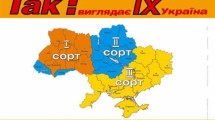Abstract
Membership of the European Union has divided British political parties for decades. On taking office, David Cameron hoped to move his Conservative Party beyond the electorally rather unwelcome focus on ‘Europe’. By 2013, he felt the best way to resolve the divisions in his own party was to try to renegotiate the UK’s membership of the EU and hold a referendum on continuing membership. This article argues that the gamble was Cameron’s to lose but that a combination of poor judgement and ill-timing on his part alongside the more potent message of the Leave campaign contributed to precisely the outcome Cameron did not want: he lost office; the country looked set to the leave the EU; and the divisions within his party were far from healed.
Similar content being viewed by others
Notes
As Ashcroft and Oakeshott (2015, pp. 489–490) note, there was always a degree of uncertainty as to how Eurosceptic Cameron actually was, although they claim that in 2000, he actively sought to persuade researcher Sean Gabb that he was ‘sceptic’, recognising the importance among grassroots members of being seen to be so.
Banks’s defection was treated so dismissively by Foreign Secretary William Hague that he rapidly increased his donation to UKIP to £1 m and his commitment to the Brexit cause was clearly cemented (Banks 2017).
This was made clear in private conversations with the author.
For an extensive analysis of the media coverage throughout the campaign, see Moore and Ramsay (2017).
At the time, the sole block on such a decision seemed to be Theresa May in her previous guise as Home Secretary, in which post she had failed to get a grip of the problem.
References
Armstrong, Kenneth. 2017. Brexit Time: Leaving the EU—Why, How and When?. Cambridge: Cambridge University Press.
Ashcroft, Michael, and Isabel Oakeshott. 2015. Call Me Dave—The Unauthorised Biography of David Cameron. London: Biteback Publishing.
Banks, Arron. 2017. The Bad Boys of Brexit—Tales of Mischief, Mayhem and Guerrilla Warfare in the EU Referendum Campaign. Ed. Isabel Oakeshott, updated edition. London: Biteback Publishing.
BBC News. 2017. ‘Theresa May’s General Election Statement in Full. BBC News. http://www.bbc.co.uk/news/uk-politics-39630009. Accessed 10 Sept 2017.
British Foreign Policy Group. 2017. Brexit and Beyond—Public Views on UK Foreign Policy. http://bfpg.co.uk/2017/06/public-views-on-uk-foreign-policy/. Accessed 15 Sept 2017.
Cameron, David. 2015. A New Settlement for the United Kingdom in a Reformed European Union. Letter to Donald Tusk, 10 November 2015. https://www.gov.uk/government/uploads/system/uploads/attachment_data/file/475679/Donald_Tusk_letter.pdf. Accessed 3 Sept 2017.
Clarke, Harold D., Matthew Goodwin, and Paul Whiteley. 2017a. Brexit—Why Britain Voted to Leave the European Union. Cambridge: Cambridge University Press.
Clarke, Harold D., Matthew Goodwin, and Paul Whiteley. 2017b. Why Britain Voted for Brexit: An Individual Level Analysis. Parliamentary Affairs 70 (3): 439–464.
Cummings, Dominic. 2017. Dominic Cummings: How the Brexit Referendum was Won. The Spectator Blog. https://blogs.spectator.co.uk/2017/01/dominic-cummings-brexit-referendum-won/#. Accessed 8 May 2017.
Curtice, John. 2017. Why Leave Won the UK’s EU Referendum. The Journal of Common Market Studies 55: 19–37.
Daddow, Oliver. 2012. The UK Media and “Europe”: From Permissive Consensus to Destructive Dissent. International Affairs 88 (6): 1219–1236.
d’Ancona, Matthew. 2013. In It Together: The Inside Story of the Coalition Government. London: Viking/Penguin.
Electoral Commission. 2017. Report on the Regulation of campaigners at the Referendum on the UK’s Membership of the European Union Held on 23 June 2016. https://www.electoralcommission.org.uk/__data/assets/pdf_file/0004/223267/Report-on-the-regulation-of-campaigners-at-the-EU-referendum.pdf. Accessed 26 Aug 2017.
Glencross, Andrew. 2016. Why the UK Voted for Brexit: David Cameron’s Great Miscalculation. London: Palgrave Macmillan.
Goodwin, Matthew, and Caitlin Milazzo. 2015. Britain, the European Union and the Referendum: What Drives Euroscepticism? European Programme. Briefing (London: Chatham House). https://www.chathamhouse.org/sites/files/chathamhouse/publications/research/20151209EuroscepticismGoodwinMilazzo.pdf. Accessed 9 Nov 2017.
Goodwin, Matthew, and Caitlin Milazzo. 2017. Taking Back Control? Investigating the Role of Immigration in the 2016 Vote for Brexit. British Journal of Politics and International Relations 19 (3): 450–464.
Hobolt, Sara. 2016. ‘The Brexit Vote: A Divided Nation, a Divided Continent. Journal of European Public Policy 23 (9): 1259–1277.
Johnson, Boris. 2015. Hansard, 1 June 2015, col. 387. https://publications.parliament.uk/pa/cm201516/cmhansrd/cm150601/debtext/150601-0003.htm. Accessed 9 Nov 2017.
Johnson, Boris. 2017. My Vision for a Bold, Thriving Britain Enabled by Brexit. Daily Telegraph, 15 September 2017, pp. 6–7.
Lamont, Norman. 2016. Interview with the Author, 15 December 2016.
MacShane, Denis. 2016. Brexit: How Britain Voted to Leave Europe. Ltd: I.B. Tauris and Co.
May, Theresa. 2017. Florence Speech: A New Era of Cooperation and Partnership Between the UK and the EU, 22 September 2017. https://www.gov.uk/government/speeches/pms-florence-speech-a-new-era-of-cooperation-and-partnership-between-the-uk-and-the-eu. Accessed 24 Sept 2017.
McCall, Alastair, and Robert Watts. 2017 ‘Five of UK’s Richest Men Bankrolled Brexit. The Sunday Times, 23 April 2017, p. 4.
Moore, Martin, and Gordon Ramsay. 2017. UK Media Coverage of the 2016 EU Referendum Campaign (King’s College London).
Oliver, Craig. 2017. Unleashing Demons—The Bestselling Inside Story of Brexit. London: Hodder and Stoughton Ltd, paperback edition.
Rawnsley, Andrew. 2017. How Long will Theresa May Survive? She’s the Very Last Person to Ask. The Observer, 3 September 2017, p. 35.
Shipman, Tim. 2016. All Out War—The Full Story of How Brexit Sank Britain’s Political Class. London: William Collins.
Smith, Julie. 2015. Europe: The Coalition’s Poisoned Chalice. In The Coalition Effect, 2010–2015, ed. Anthony Seldon, and Mike Finn, 370–396. Cambridge: CUP.
Smith, Julie. 2016. ‘David Cameron’s EU Renegotiation and Referendum Pledge: A Case of déjà vu? British Politics 11 (3): 324–346.
Smith, Julie. 2017. The UK’s Journeys Into and Out of the EU: Destinations Unknown. London: Routledge.
Thompson, Helen. 2017. Inevitability and Contingency: The Political Economy of Brexit. British Journal of Politics and International Relations 19 (3): 434–449.
Worcester, Robert, Roger Mortimore, Paul Baines, and Mark Gill. 2017. Explaining Cameron’s Catastrophe. London: IndieBooks.
Acknowledgements
The author is grateful to Donna Doerbeck, Geoffrey Edwards and David Yates for comments on earlier drafts of this article, and to the editors for their support. Any errors remain her own.
Author information
Authors and Affiliations
Corresponding author
Rights and permissions
About this article
Cite this article
Smith, J. Gambling on Europe: David Cameron and the 2016 referendum. Br Polit 13, 1–16 (2018). https://doi.org/10.1057/s41293-017-0065-5
Published:
Issue Date:
DOI: https://doi.org/10.1057/s41293-017-0065-5



